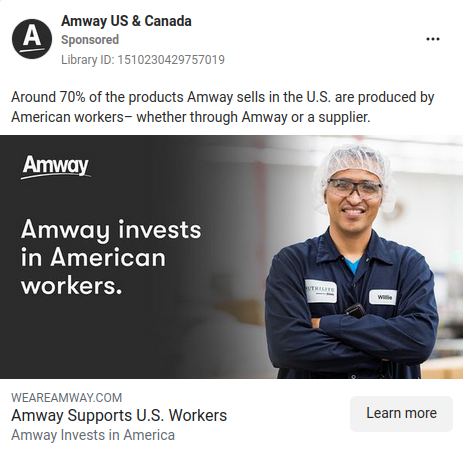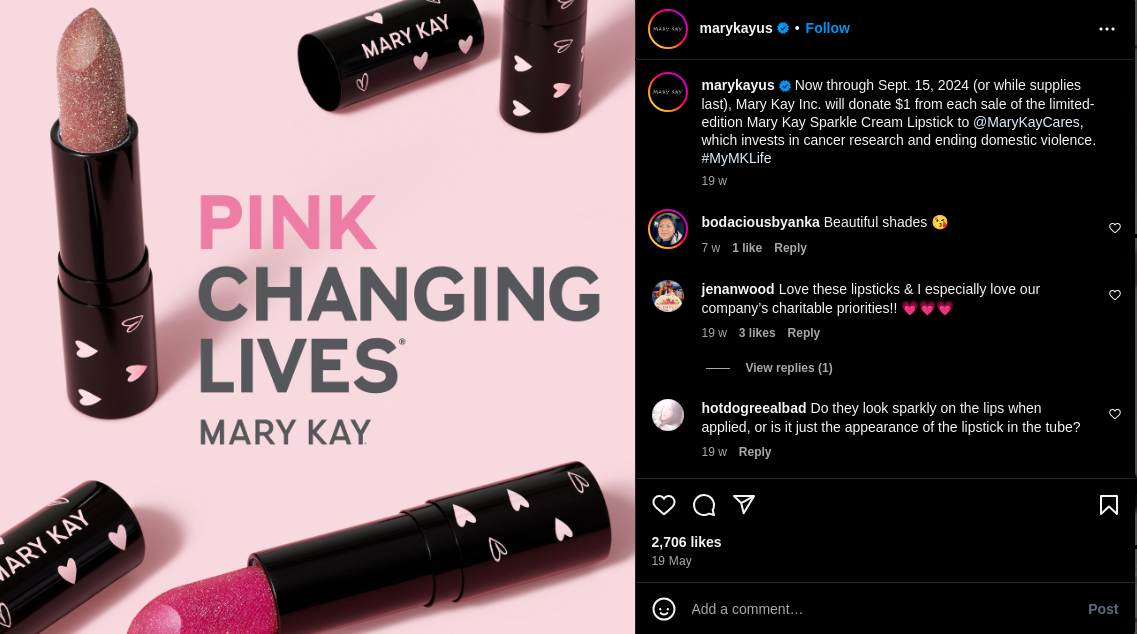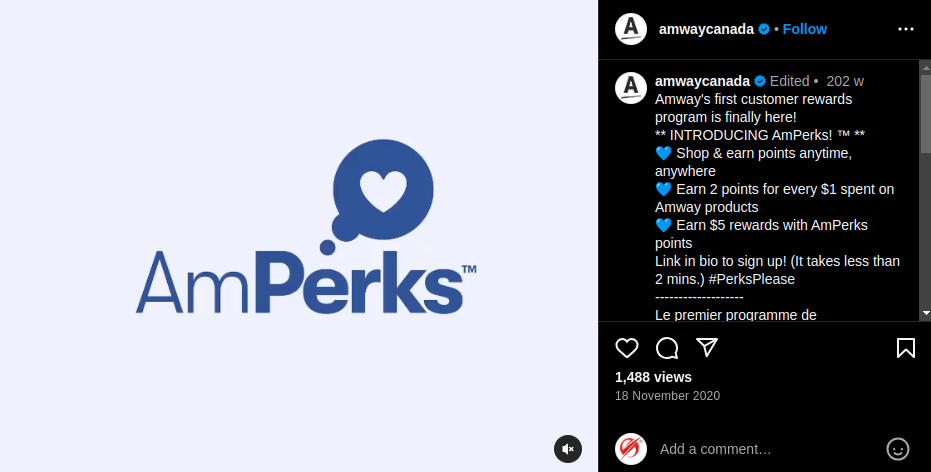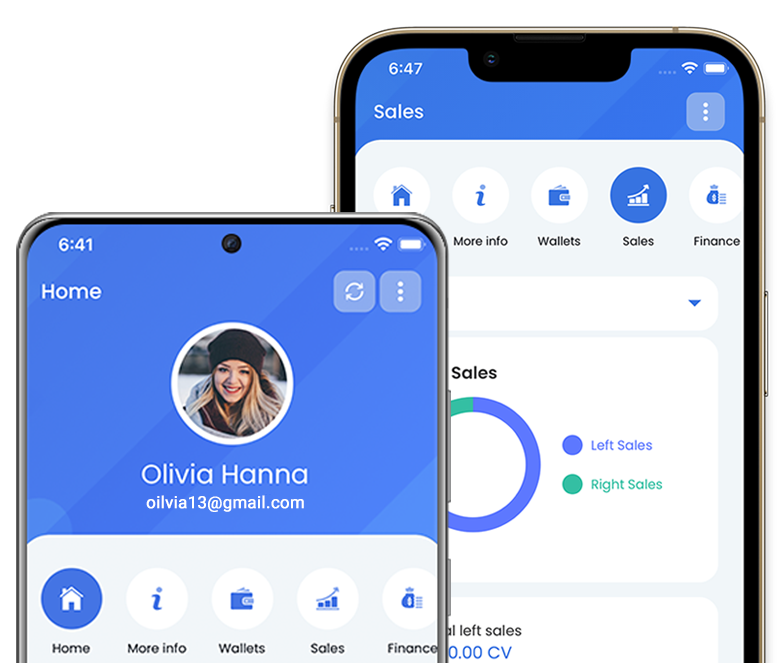After having analyzed how top MLM companies have explored the growth and have expanded themselves into new frontiers of the business in part one of the data study, Epixel MLM Software is diving deeper into analyzing the sophisticated tactics of MLM digital marketing strategies and how they are paving the way to success for new-age direct selling businesses.
In part one of the MLM digital marketing study we spoke about seven core digital marketing strategies that have been instrumental in driving growth, enhancing customer acquisition, optimizing distributor engagement, and various other success aspects of MLM businesses. On that foundation, part two of the data study will take you through unique digital marketing strategies that are not only innovative but also socially conscious and blend well with brand objectives and community-driven values.
You will read through how diverse digital marketing approaches are reshaping the competitive direct selling landscape and are driving forward-thinking MLM organizations to sustainable growth.
How are innovative digital marketing strategies revolutionizing MLM success
Beyond social media, digital marketing strategies are so diverse and offer businesses a wealth of opportunities. It can amplify brand visibility, optimize lead conversion, and foster deeper customer engagement through inventive and data-driven approaches.
While customer engagement is the core purpose of integrating digital marketing strategies into MLM businesses, it is also intended to create a dynamic business ecosystem.
On that note, we are running our round two of analyses on avant-garde digital marketing strategies that top MLM businesses from across the world have imbibed to drive growth across all aspects of business success.
1. Community building and social commerce
Community building is one of the strongest mlm online marketing strategies that businesses of all sorts are adopting these days to stay on top of customer minds. It is the process by which brands build and nurture a group of individuals who share similar thoughts, interests, values, and goals that resonate with a particular brand or its products or services. In the MLM business context, community building is an effective strategy through which strong connections between the brand, customers, and distributors can be efficiently built improving loyalty rates, word-of-mouth marketing, and long-term retention.
Social commerce on the other hand is integrating ecommerce functionalities into social media platforms that let customers discover, explore, and purchase products directly from shoppable posts, in-app purchases, product recommendations, live selling, and user-generated content. MLM businesses could capitalize on Instagram, Facebook, TikTok, Pinterest, and other such social platforms to stay engaged with customers, drive sales, and foster trust through influencer marketing, and peer-to-peer interactions.
Scentsy + community building and social commerce
Scentsy, scents, fragrances, and home decor MLM company, is known for their community building and social commerce strategies. Over the years, the brand has built a strong community around it to keep customers engaged through various events and social media groups. This strengthens the brand’s credibility when customers are surrounded by a supportive environment with expert tips, and experiences thus encouraging repeat purchases, and fostering loyalty.
The brand has also made use of social commerce techniques through shoppable posts on Instagram, YouTube, and other such platforms that enable easy purchases for customers. These strategies are a holistic approach that helped Scentsy keep customers and distributors engaged, drive sales, strengthen their market presence, and build long-term growth.
How community building and social commerce impacted Scentsy in fostering loyalty and streamlining purchases
Word-of-mouth marketing is something that dedicated or satisfied customers and distributors would usually do. Especially for a fragrance MLM business, olfactory attractions also matter. Loyal customers and distributors become brand advocates who endorse the brand to their peers, and close circles driving organic growth.
Creating a seamless shopping experience is the main intention of integrating social commerce into businesses. This not only reduces friction during purchases but also gives businesses diverse opportunities to get their products showcased in the digital space attracting more people to catch product attention and shop instantly. Integrating ‘shop now’ features lets customers explore products even before purchasing them, increasing purchase rates, repeat purchases, and average order values.
Interacting with customers in real-time through social media platforms increases customer-brand-distributor connection and communication to a larger extent increasing engagement rates. Running live streams with brand ambassadors, customers, and brand advocates, question-answer sessions, product launches, etc. are efficient opportunities through which obtaining feedback and improving interactions can be effectively done thus personalizing shopping experiences to a whole new level.
The result
Scentsy leveraged community building and social commerce strategies to shorten sales cycles and boost revenue through increased lead conversions and customer retention. Community-driven engagement clubbed with instant shopping opportunities through social media platforms got the brand literally to the customer's fingertips improving trustworthiness and brand reliability by manifolds.
2. Personalization and AI Integration
For businesses that are in a constant race to improve customer engagement and brand credibility, personalization is an inevitable tool. Tailoring products, services, and experiences to customer liking, choices, preferences, and behavior personalization goes a long way in the MLM business. This helps the brands to stay in long-term engagement with customers and retain them effectively. In the era of digital marketing, personalization applies to customizing content, recommendations, and every communication based on demographics, purchase, and behavioral data, ideally to give customers an experience with the brand rather than just buying and selling.
Similarly, AI integration is blending artificial intelligence mechanics into systems, processes, and even products to power up its functionalities to a whole new level. AI functionalities in MLM businesses include automation, machine learning, natural language processing, predictive analytics, etc, that help systems to imbibe and stay abreast of changing customer attitudes. AI integration is also intended to improve decision-making, streamline workflow, and thus enable better, smarter, faster, and more personalized customer interactions.
Arbonne + Personalization and AI integration
While personalization isn’t a new word in the MLM context, the impact that personalization as a strategy has made on businesses in the direct selling arena is quite large. Arbonne, the vegan nutrition, skincare, body care, haircare, and makeup brand integrated personalization and AI integration into their digital marketing MLM framework to personalize their marketing campaigns with AI-powered tools. As a result, chatbots gave prompt responses and support to leads and customers by utilizing data and tailoring communication according to their choices.
Arbonne leveraged AI-driven algorithms to analyze customer data such as their skin type, hair texture, nutritional requirements, and preferences of ingredients like vegan, plant-based, etc to meet unique customer needs and thus accelerate customer satisfaction and brand loyalty.
Factors that improved customer satisfaction and shopping experience with personalization and AI integration for Arbonne
Personalized plans and regimens analyzing customer choice of products that are suitable for their unique needs improved customer satisfaction tremendously. Individualizing skin, haircare, and nutritional plans based on customer lifestyle, habits, and concerns like acne-prone skin, flaky skin, food allergies, etc. improved customer connection, and brand trust to new levels.
Virtual try-ons and skin and hair analysis enabled customers to try makeup products that suited their skin shade virtually. Arbonne made use of these advanced AI features to help customers visualize how a particular product will look on their skin or hair. Personalizing the products further to suit customer complexion, skin tone, and hair type created an immersive and highly interactive shopping experience.
Dynamic ingredient transparency was yet another factor that Arbonne showcased with advanced AI integration where customers could assess ingredient preferences based on their ethics and morale like planet-conscious, cruelty-free, vegan, etc. Arbonne dynamically displayed its products to ensure that they meet customers’ ethical standards with utmost transparency.
The result
AI integration and personalization is a killer combo with which Arbonne revamped its digital marketing strategies and gave the business a comprehensive facelift. From developing products through predictive analytics to enhancing customer support with AI chatbots, and targeted customer approach, the strategy helped the brand drive growth from all ends boosting conversions, brand affinity, and long-term customer relationships.
3. Patriotic marketing using Facebook ads
Patriotic marketing is an effective digital marketing strategy that combines national pride, values, and cultural themes into social media campaigns to stay in line with the nation’s patriotic feelings. Brands usually adopt this strategy during national events, historic moments, or any such instances where freedom, unity, or pride is showcased. Patriotic marketing is an effective digital marketing strategy to connect with customers emotionally thus building brand credibility and customer loyalty.
Amway + patriotic marketing
One of the leading MLM home care, beauty, and healthcare businesses, Amway integrated patriotic sentiments effectively into their MLM social media strategies by highlighting American manufacturing and community involvement. The brand portraying the contribution of American workers to its supply chain instilled a sense of national pride and support among the countrymen. This strategy could also create a huge appeal for customers who prefer supporting local businesses and locally sourced ingredients in the products they use.

Effective implementation of patriotic marketing and its effect on improving brand credibility for Amway
Inspiring wellness as a national responsibility was one of the ways through which Amway promoted its products on the Facebook platform. Further to running an awareness that said wellness and self-care aren’t just personal but a national responsibility too, they emphasized that investing in oneself with one of Amway’s products is equivalent to investing in a healthy nation.
Limited edition patriotic products were created and promoted through Facebook by the brand in association with holidays or commemoration days. This attracted customers to grab a product with their nation’s customized imagery as a souvenir or keepsake. Connecting products with local craftsmanship, national pride, or the collective wellness of a nation boosted the brand’s engagement on Facebook and fostered deeper emotional connections.
Supporting national causes such as educating a girl child or preventing carbon footprints was yet another mode of patriotic marketing through which the brand endorses its commitment and responsibility to the growth of the country. When the product packaging reads one part of your purchase money will be contributed to a particular cause, it evokes a feeling of patriotism driving in repeat purchases.
The result
By portraying the brand’s commitment to building a nation that is hearty and healthy, Amway endorsed its devotion and dedication to its people and their well-being. Effectively executing this strategy ingrained the brand’s image into the customer’s heart thus bringing them back to the brand more than for just purchases but for a long-term business relationship.
4. Local marketing
Local marketing is a marketing strategy where brands target customers within a specific geographic area. Brands plan marketing campaigns around a particular village, town, or city targeting their habits, behavior, preferences, or mannerisms that are area-specific. Local marketing mostly involves messages, promotions, or advertising in local languages or dialects to attract customers from the vicinity to improve footfall, and sales from local customers and build a loyal community. The key elements of local marketing include curating content that reflects the local culture or events, geographic targeting using Google Ads, and other location-based apps, and exclusive local promotions.
Vivint + local marketing
The smart home security and alarm MLM business focused on enhancing its business with local marketing strategies considering its effectiveness for conventional brick-and-mortar stores, service-oriented businesses, and companies. Local marketing strategies serve best for businesses that are aiming at building a strong connection with their local territory. Considering this, Vivint effectively integrated a local marketing strategy into its business to target customers who are aware and conscious of home security systems within a specific geographic location. This way, Vivint positioned itself as the #1 home security system in Minneapolis, capitalizing on local pride and trust.
Relevance of local marketing strategy in enhancing customer support and proximity for Vivint
Building trust in the community is a necessity for a home security business considering the common human psychology of trusting a local brand that understands the region-specific security concerns. Vivint, through its localized marketing efforts, established credibility and fostered connections showcasing the brand as a part of the local community.
Better online visibility through localized SEO helped Vivint optimize its online presence so that potential customers who searched for home security systems near them could easily locate the brand. The strategy aided in generating organic traffic and better lead conversions from individuals searching for security and alarm systems from within the vicinity.
About 44% consumers admit that they use search engines often to discover information about businesses and services in a particular region.
Source: Clutch
Immediate support and proximity are two factors that Vivint carefully projected to give customers confidence in after-sales service and assistance. The brand made customers aware of the importance of immediate response to any consultations considering the cruciality of home security systems and emergency support.
The result
Vivint, focusing on the dynamics and specific requirements of the regional market, improved its brand trust and community engagement. The brand’s readiness to tailor specifications according to local needs, face-to-face interactions, and hands-on experience delivered more effective results than virtual experiences and promotions. This also led to a greater number of collaborations with local businesses, joint promotions, and referrals boosting lead generation and sales conversions.
Discover how we build resilient businesses with advanced MLM functionalities
5. Lifestyle marketing
Lifestyle marketing as the name refers to is a strategy through which products or services are promoted that gel well with the values and interests of the target audience and their way of living. Rather than just selling a product, lifestyle marketing focuses on how a particular product boosts the customer’s lifestyle, identity, and sense of belonging. Brands focus on creating an emotional connection between customer lifestyle and products to showcase how the product can be an integral part of their lives thus fueling customer interests and brand loyalty.
Betterware + lifestyle marketing
The MLM kitchen and household product business, Betterware communicated with their potential customers through stories that can connect with customer lifestyles. Featuring how Betterware products influence and impact customer lives daily highlighting brand values like sustainability, BPA-free plastic, etc. created a larger appeal to customers who could connect themselves and aspire to the said lifestyle. The brand positioned itself as a company whose products are an essential element of a desirable lifestyle.
The relevance of lifestyle marketing in building stronger customer relationships for Betterware
Driving long-term engagement and effective customer retention was derived from integrating lifestyle marketing into the success strategy of Betterware. Promoting a home-oriented, and value-driven lifestyle through the brand’s products boosted repeat purchases, and long-term engagement connecting deeper with the brand more than just its products.
Building a robust brand identity where the brand’s products are positioned as necessities without which an organized, minimal, but aesthetically beautiful home cannot be made. Betterware encouraged its customers to build well-managed and comfortable households with their products allowing customers to experience a newer and better lifestyle.
Storytelling is yet another key aspect of lifestyle marketing where customers are shown real-life examples of how Betterware’s products help customers create dreamy, cozy, and comfortable homes. The brand also told stories of how a better home environment helps improve quality of life and self-love.
The result
Betterware used user-generated content and collaborated with influencers to portray how the brand can be a part of their everyday lifestyle. The brand ensured that the marketing strategies are set in line with brand values allowing potential customers to imbibe the essence of product value and its importance in their lives. This nurtured longer and stronger customer relationships at an emotional level reflecting customer value.
6. Cause marketing
Cause marketing is an approach through which a brand or business supports or promotes a particular cause that is in line with the brand’s values and ethics. This is a win-win strategy that helps the cause benefit from the association and at the same time improve the brand’s integrity and credibility with its gesture of commitment to various socioeconomic or environmental causes.
Cause marketing + Mary Kay
Mary Kay, one of the leading MLM skincare and color cosmetics businesses in the world, has a very staunch brand ethic when it comes to standing by or supporting causes. The brand partners with the renowned Mary Kay Ash Foundation to support cancer research and prevent domestic violence. Customers with similar interests in supporting the causes that the brand endorses tend to stay loyal to the brand for a longer period.

The transformative influence of cause marketing in building brand authenticity for Mary Kay
Market differentiation is one of the key aspects where the brand in this very competitive landscape makes use of cause marketing as a USP (Unique Selling Proposition) to stay ahead of the competition through its commitment to various social issues. When the cause that the brand endorses is genuine, customers are sure to stand by the brand and contribute to the cause that they also care about.
Sales with a purpose is yet another characteristic of cause marketing where beyond just purchase, customers feel that they are being a part of a larger cause by making contributions through their purchase. This motivated customers to make repeat purchases as the cause resonates with their ethics and values as well.
The Corporate Social Responsibility (CSR) of the brand improves when the brand associates with endorsing various causes like going plastic-free, cruelty-free, carbon-free, etc. As a brand that is keen on CSR and social upliftment, Mary Kay’s cause marketing strategy worked wonders in improving the brand’s authenticity.
The result
Cause marketing helped revamp Mary Kay’s growth by tapping into customer emotions and the brand’s purpose-driven strategies. As a result, the strategy increased brand visibility in a market that is rapidly growing, built brand loyalty by connecting emotionally with customers, and boosted engagement by involving customers and distributors to take part in supporting meaningful causes.
7. Seasonal marketing
As the name suggests, seasonal marketing is a digital marketing strategy where businesses launch their marketing strategies around a particular season like holidays or other specific times to leverage the seasonal demands. The strategy involves curating season-specific products and services and running time-specific promotions, and campaigns around a particular theme. This not only helps the brands drive maximum sales but also higher engagement considering the customer’s willingness to spend time and money during the holiday season.
AVON + seasonal marketing
The direct selling skin care, hair care, makeup, fragrance, and personal care brand, AVON launched its ‘Start your summer glow up with Avon’ campaign to help its customers prepare themselves before the onset of summer in the United States. The brand made conscious efforts to give its customers a fresh look that improves their confidence during the summer season through the campaign.
The significant effect of seasonal marketing in increasing customer engagement on AVON
Increasing interactions both online and offline through seasonal marketing campaigns by participating in events, and purchasing products related to the season, encourages interactions at various levels. This ideally boosted the brand’s visibility, creating newer and better opportunities for customer interaction.
Providing a limited period offers improved customer excitement to shop for the exclusive range of season-specific products. Seasonal products, discounts, and bundles created a buzz around the season, and a sense of urgency encouraging customers to make faster purchase decisions. The themed collection and festive essentials give an unmissable urge to quickly grab before it's gone.
Timely relevance of seasonal campaigns such as Valentine’s Day, Christmas, New Year, etc. is an opportunity for the brand to push customers to purchase without a second thought. The relevance of the festive season drives customer engagement due to societal pressure and attraction.
The result
AVON's seasonal marketing campaigns gave the brand a higher brand relevance for its timely launches that are festive essentials. This boosted the brand sales with a higher number of customers shopping within a specific time frame, and increased customer engagement for the brand’s seasonally relevant campaigns and promotions.
In short, seasonal marketing helps brands run predictive analytics based on customer behaviors and launch products to their choices and liking. As a result, customer relationships were deepened, and sales figures went up.
8. Loyalty programs
One of the most widely heard and used market strategies, loyalty programs is a key component of digital marketing strategy that encourages repeat purchases with bonuses and rewards. The loyalty program incentivizes customer’s continued engagement with the brand with discounts, exclusive offers, and redeemable points to build long-term customer relationships and loyalty. Businesses based on their requisites integrate various types of loyalty programs into their framework such as reward-based loyalty systems, tiered, referral types, etc. to increase customer retention and improve engagement.
Amway AmPerks + Loyalty Programs
AmPerks is Amway’s reward program where customers can earn points for every qualifying purchase and can redeem points as dollars after future purchases. Through AmPerks, Amway marketing strategy tries to emphasize customer engagement and effective retention by providing exclusive offers, various perks, and rewards to drive repeat businesses, increase engagement, and differentiate themselves in the direct selling market competition.

The essential influence of loyalty programs and AmPerks in building a loyal customer base for Amway
Data-driven personalization to have a better idea and understanding of customer preferences, choices, and habits allowing a more personalized and targeted marketing. As a result, customers could easily resonate with the brand and feel connected thus driving repeat purchases, engagement, word-of-mouth, and loyalty.
Improved brand advocacy and trust through consistent rewards and incentives that improve customer’s trust in the brand encouraging them to be brand advocates and referrals suggesting the brand and its products to their friends and family based on their positive experience with the brand.
Intensifying customer retention with loyalty programs that allow customers to earn points for every order or purchase that are redeemable as discounts or dollars based on customer preferences. Incentivizing customers at regular intervals brings the customer back to the brand for repeat purchases, improving retention rates to a new high.
The result
AmPerks created a deep sense of exclusivity in customers leaving them to feel valued and appreciated by the business. Through regular communication on rewards, promotions, and offers, the brand and customer interaction strengthen creating a stronger bond and lasting customer loyalty. AmPerks created an essential influence on Amway by driving repeat purchases, building customer engagement, and creating a solid customer base blended with values, exclusivity, and personalization.
Strategic insights to sustained growth, a road map to success
In brief, digital marketing strategies derived from data-driven insights give direct selling businesses a clear road map to expand their businesses to new frontiers and improve success. In a world that lives in the future with the power of data and predictive analytics, MLM businesses are running in the forefront not just to improve sales but to create a shopping experience for its customers, improve their brand credibility, and build a robust customer base.
MLM digital marketing is an effective strategy through which businesses can leverage comprehensive data and gain a deeper understanding of what customers are expecting out of the brand. Brands resonate with their customers through their values and objectives and improve customers’ affinity towards the brand and trustworthiness to an exceptionally new level.
Strategic planning, customer insights, personalized marketing, and loyalty programs together constitute a great combo that helps direct selling businesses build a stronger base in the market, stay ahead of the competitions and achieve sustainable success in the dynamic direct selling market in the United States.






![How marketing automation is empowering success for direct selling companies [Backed by stats]](https://assets.epixelmlmsoftware.com/sites/default/files/blogs/recent-blogs/marketing-automation-direct-selling.png)


Leave your comment
Fill up and remark your valuable comment.